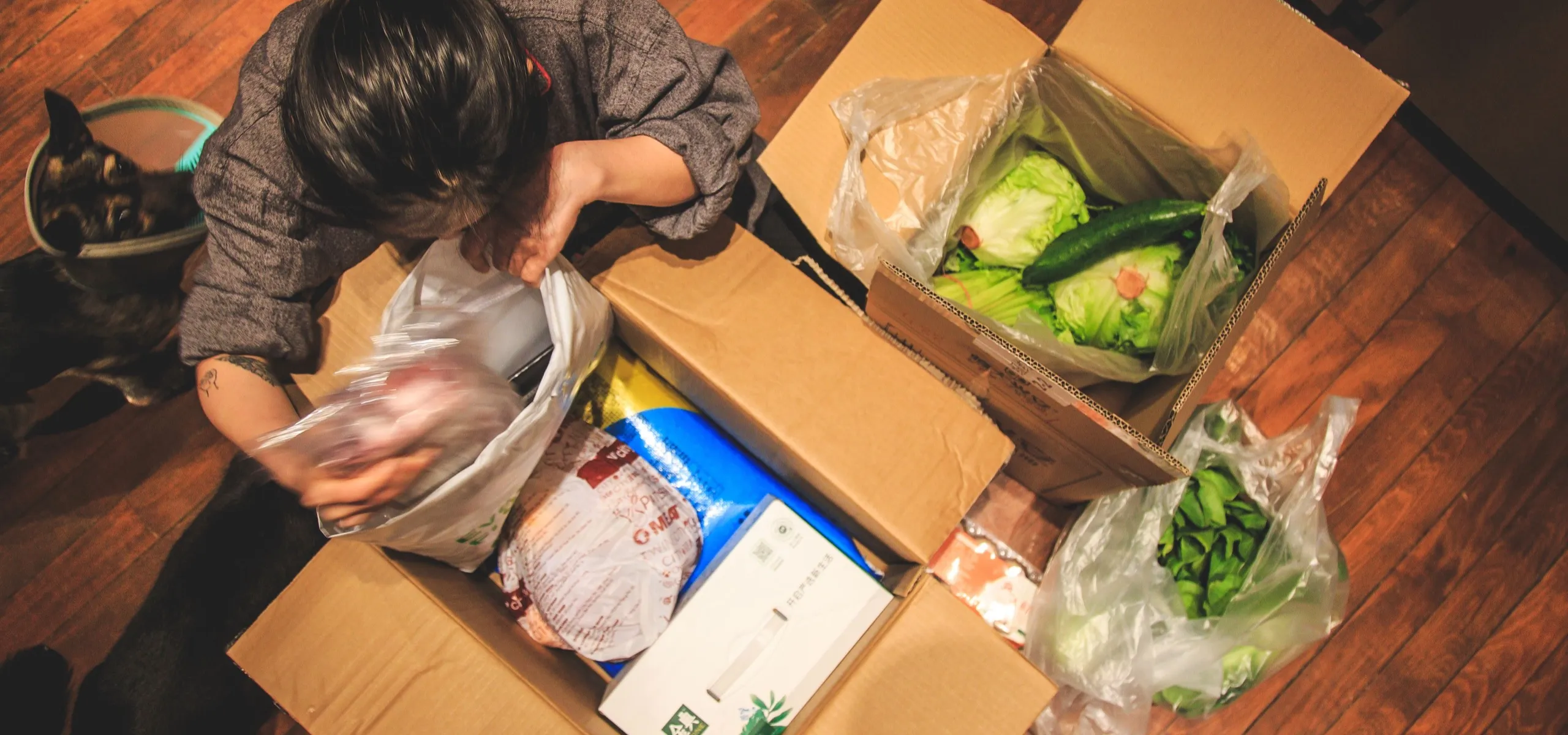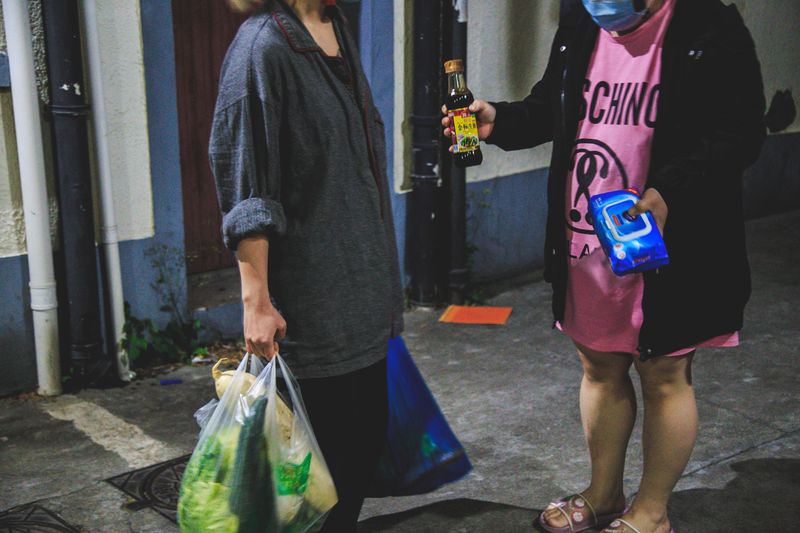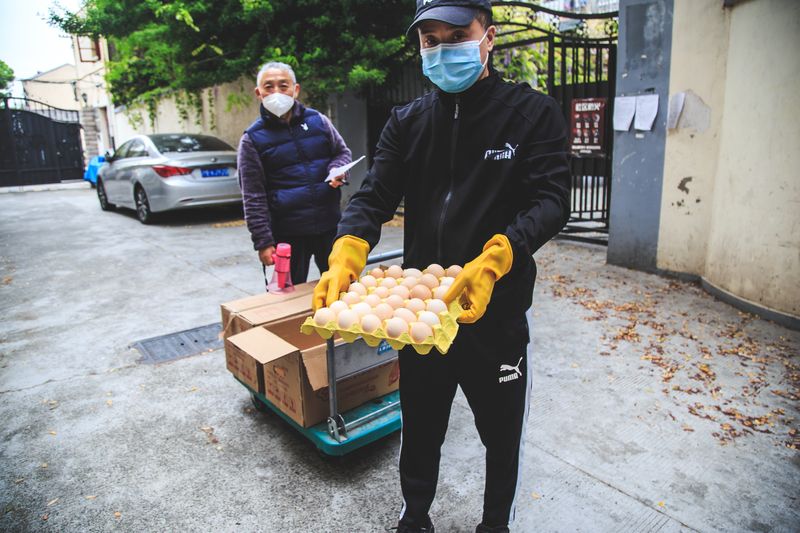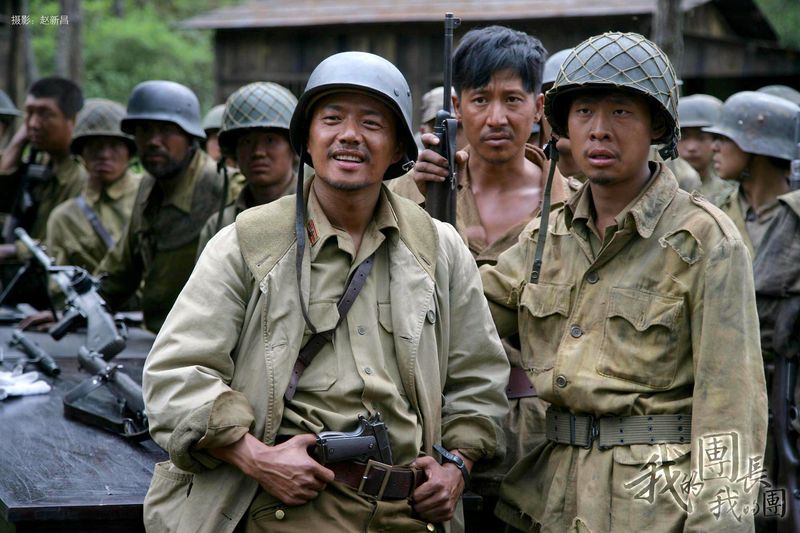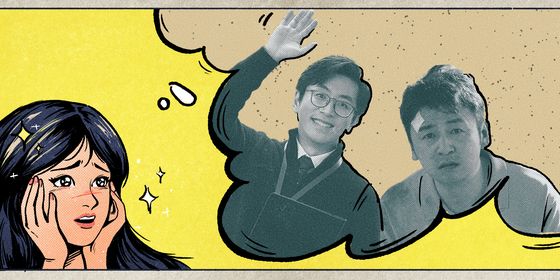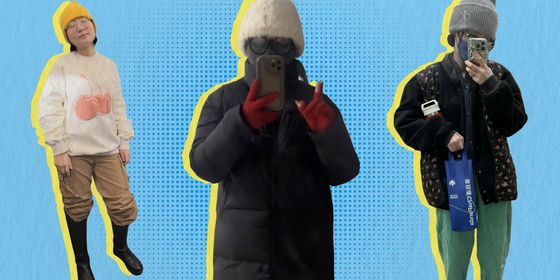Group-buying chiefs, vegetable storing guides, the Covid calendar, and “hard currency” cola—learn the internet slang inspired by the Shanghai lockdown
Shanghai, China’s largest city and the country’s financial hub, is often known as the “City of Magic (魔都 Módū).” But since the recent Covid-19 outbreak has brought empty streets, food shortages, bartering, and unfamiliar silence to the normally bustling metropolis, netizens have instead referred to it as the “Surreal (魔幻 Móhuàn)” city.
Memes have abounded that make fun of the strange happenings in the wake of the Shanghai lockdown, still ongoing now nearly a month later after it was gradually rolled out in late March. One meme shows a caged individual asking others: “What year is it outside (外面是哪一年了 Wàimiàn shì nǎ yì nián le)?” The answer: “The third year of the Covid-19 calendar (新冠历第三年 Xīnguānlì dì sān nián)”—as opposed to the Gregorian or Lunar calendars.
With businesses shut down and some foods hard to come by, numerous “vegetable storing guides (囤菜指南 túncài zhǐnán)” have emerged online, telling people which vegetables are the most filling, stay fresh the longest, or are best for freezing. The guides also often include (somewhat) practical advice for young professionals accustomed to eating out or getting takeout: “Before stockpiling food, don’t forget to buy yourself a pot (囤食物前,别忘了给自己准备一口锅 Tún shíwù qián, bié wàngle gěi zìjǐ zhǔnbèi yì kǒu guō)!”
With food delivery apps constantly crashing, some people have decided to help themselves by growing their own vegetables. As lettuces, onions, and celery appear on Shanghai balconies, one refrain online goes, “Growing vegetables is a natural gift in Chinese people’s genes (种菜是刻在中国人基因里的天赋 Zhòngcài shì kè zài Zhōngguórén jīyīn li de tiānfù).” Netizens say the metropolis has returned to being an agricultural society (农耕社会 nónggēng shèhuì) and a barter economy (以物易物 yǐwù yìwù), as people have turned to trading provisions with their neighbors, especially for non-essential items absent from government supply lists.
Coca-Cola, lauded as “肥宅快乐水 (Féizhái kuàilèshuǐ, Happy water for fat nerds),” has apparently become a rare commodity during the lockdown, and a valuable item for barter. It’s become known as “hard currency (硬通货 yìngtōnghuò)” online. Memes about the value of various goods have spread on social media: Allegedly, two packs of cigarettes can be swapped for five pounds of beef; an unopened bottle of La Mer skin-care product is worth three jars of Laoganma, a renowned chili sauce; and one can even obtain 30 minutes of play time with an enterprising resident’s pet cat in exchange for three oranges.
Facing a labor shortage, many delivery services set minimum order requirements. Therefore, innovative residents have clubbed together to take advantage of “group buying (团购 tuángòu).” These buying groups are led by what have become known as “group chiefs (团长 tuánzhǎng),” a term that usually refers to the commander of a military regiment. The name and poster of the TV series My Chief and My Regiment (《我的团长我的团》 Wǒ de Tuánzhǎng Wǒ de Tuán), about the war against Japan, has been reappropriated to describe the drama of Shanghai residents’ lives under lockdown: “My group-buying chief and my group.”
One netizen laughed online: “In the past few days, I felt as if I had returned to the anti-Japanese war and joined the militia. My WeChat is full of messages like, ‘Where’s the commander? Commander, are we doing it or not?’ (这几天感觉自己仿佛回到了抗日战争时期,参加了当地民兵组织。打开微信,充满了各种:团长呢?团长我们还干不干? Zhè jǐ tiān gǎnjué zìjǐ fǎngfú huídào le Kàng Rì Zhànzhēng Shíqī, cānjiāle dāngdì mínbīng zǔzhī. Dǎkāi Wēixìn, chōngmǎnle gèzhǒng: Tuánzhǎng ne? Tuánzhǎng wǒmen hái gàn bú gàn)?”—from residents asking whether it’s time to place the community’s order for the day.
Rather than a war film, though, some people feel that Shanghai’s lockdown is more like the TV series Reset, a 2022 time-traveling mystery drama featuring a college student and a video game designer trapped in a Groundhog Day-like loop. They complain online: “Am I living in Reset? Another positive patient was discovered in the building next to mine, so tomorrow is another first day of another 14-day-quarantine. I wish we could fast-forward to the final episode. (我是活在《开端》里吗?刚刚隔壁楼又阳了,明天又是14天的第一天,想快进到最后一集。 Wǒ shì huó zài Kāiduān li ma?Gānggāng gébì lóu yòu yáng le, míngtiān yòu shì shísì tiān de dì yī tiān, xiǎng kuàijìn dào zuìhòu yì jí.)”





